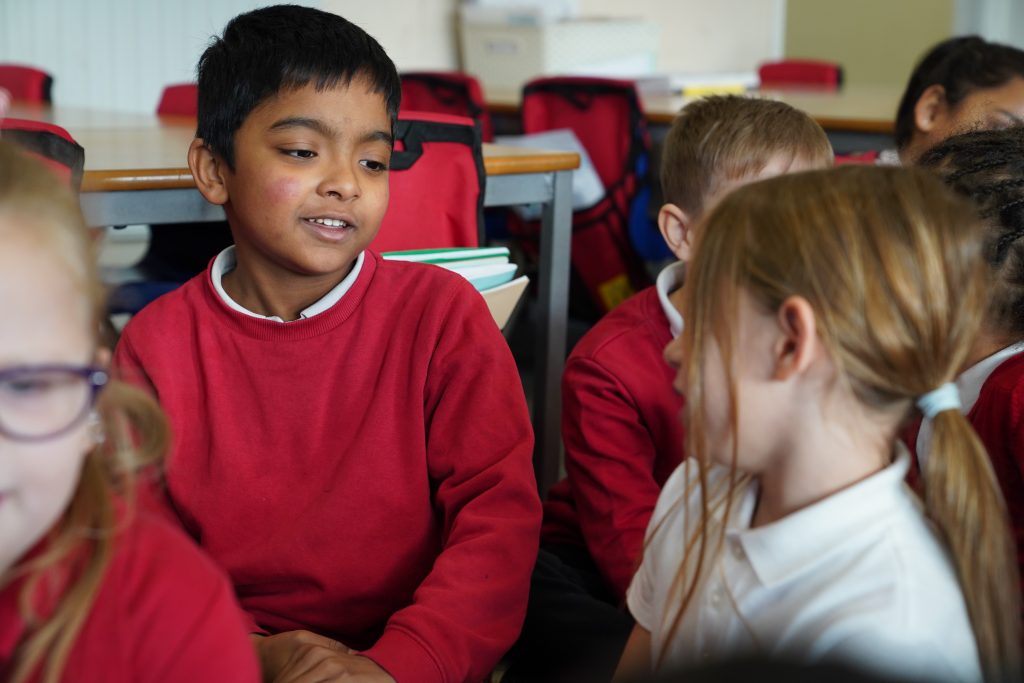I’ve just listened to a podcast about UPFs. I say to my partner, you’ve got to stop eating ultra-processed foods. They’re hijacking your hormones. They’re bad for your gut… and then, I stumble. (I thought I’d remembered.) I listen to the podcast again. I order Chris Van Tulleken’s book, Ultra Processed People. I make notes. And then… I get everyone’s attention. The more I explain, the more knowledgeable I feel! Ask me about leptins and ghrelin!
The challenge of explaining something new to someone else clarifies our understanding – we realise what we understand and what we don’t. But explaining something new is hard. Really hard – we have to invest considerable effort. We stumble, we um and er and hesitate as we search for a word or phrase. Who talks in neatly formed sentences on their first go?
This is why, as teachers, we learn so much. We have to do a lot of explaining. And what’s more we have to read a lot before we explain anything. And then we practise until we can make it sound interesting. Children learn more when they try to explain what they understand. And, knowing that they’ll have to explain what they think with a partner encourages them to pay attention – and stops their minds wandering. Verbalising helps everyone internalise.
And as teachers, by asking questions every few minutes, and listening to partners explain a point to each other, we can see – instantly – if they’ve understood what we’ve said. We can check whether we’ve explained it well. And if we haven’t, we shouldn’t just move on. We check in…so children don’t check out!
The ‘explanation effect’ can only impact on children’s progress in an environment where children feel safe to try out their ideas, unworried by making errors.
But first we need to…BANISH HANDS-UP.
Until we do, only a few children will benefit from the ‘explanation effect’ – the risk takers.
Only risk takers willingly raise their hands to ask or answer a question in front of 29 others – and many more in assembly.
Significant research shows that the fear of failure is several times stronger than any expectation of reward. In this case, the risk of getting an answer wrong is far greater than the pleasure of getting it right.
The risk takers believe that what they’ve got to say is worth hearing.
They want to try out their thinking in front of others – even when they’re not sure about their idea.
Failure to get the answer right doesn’t bother them. They don’t think about other children’s reactions.
Risk takers are often, but not always, from talk a lot homes. They are used to being listened to. They enjoy having everyone’s attention on them. They love explaining their ideas.
But who can blame the risk averse children for not raising their hands? There’s so much at stake. They worry they might have a wrong answer. They worry that children will laugh at them. They don’t want the limelight.
In ‘hands-up’ classrooms:
5 children raise their hand to answer
2 explain
3 are thwarted
25 watch
(And remember thumbs up, and chests up are the same as hands up.)
In hands up classrooms, the teacher may feel they control their children. The children look well-behaved, but who is really in control? 25 children are choosing not to respond. The teacher can only be sure that 5 children are listening – and understanding.
And we also need to… BANISH ‘PULL-OUT- THE-STICK ‘
You know – when a teacher asks a question and draws a random name from a pot of sticks to select a child to answer. The risk averse are on red alert throughout the lesson. Fear replaces safety.
And still:
Only 1 or 2 children explain.
And 28 watch.
What do we need? Turn to your partner! For every question.
The risk averse can try out their ideas privately before they share. And the risk takers? They can too – but without dominating the other 25. And as the year progresses – step by sensitive step – the risk averse children will feel safe to explain their ideas to the class.
Shy children.
Children who don’t talk much at home.
Children learning to speak English.
Children with special educational needs.
If we’re serious about raising achievement – doing ‘more’ – we must make participation compulsory.

